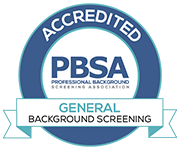Public Enemy #1 is Public Acceptance
Paul Clement
Why are our insurance premiums so high in Ontario? After speaking with many insurance professionals over the last two years, the unanimous verdict to this question is fraud. Ontario’s auto premiums are twice as high as the East Coast and are about 45% higher than Alberta (IBC). Meanwhile, fraud in Ontario costs us between $770 million and $1.6 billion per year (KPMG’s report to IBC in 2013).
However, if you were to ask my initial question to anyone not familiar with insurance they probably wouldn’t be able to give a response and I bet that they wouldn’t know about these staggering numbers. The alternative to not knowing these statistics, however, is looking at our bills passively and not giving a second thought to why they might be increasing. Once the facts are in front of you, it becomes easier to understand the cost challenges that the insurance companies are facing. Why doesn’t anyone care that we are being charged more and more? Shouldn’t everyone be informed of these mind-boggling statistics? With all of this in mind, I’m left wondering if everyone knew that fraud was the cause of our pockets being emptied, would any action be taken? The answer seems to be no, at this point.
We are all victims to fraud. Everyone is affected by every staged, inflated, organized and dishonest claim made in an attempt to make some quick money. I have heard countless stories about the lengths that people will go to make money through manipulating the insurance system. So… how do we change society’s attitude from apathy to genuine disgust that our money is being taken from us by fraudsters? If I took money from you, would you do something about it? Is it because we cannot put a face to our robbers that we accept thievery as part of normal life?
I was lucky enough to hear Dr. Michael Skiba and James Egner speak about this topic at the CASIU Annual Fraud Forum this past September and they provided many valuable insights into the psychology behind why people commit fraud and what thresholds we as people are willing to tolerate. I believe that the general topic of what people perceive as criminal and what society is willing to accept as the norm is interesting and important if fraud is to be put on the public’s radar.
The good news is that there does seem to be some direction coming. The arrival of new technology, risk prevention methods and harder sentences for criminals all seem to be slowly moving the dial. I, however, believe that the real change will occur when we as the general public become aware of the problem and strive to solve it rather than contribute or sit on the sidelines. I encourage all to check out this IBC brochure to get a real sense of what is going on.






